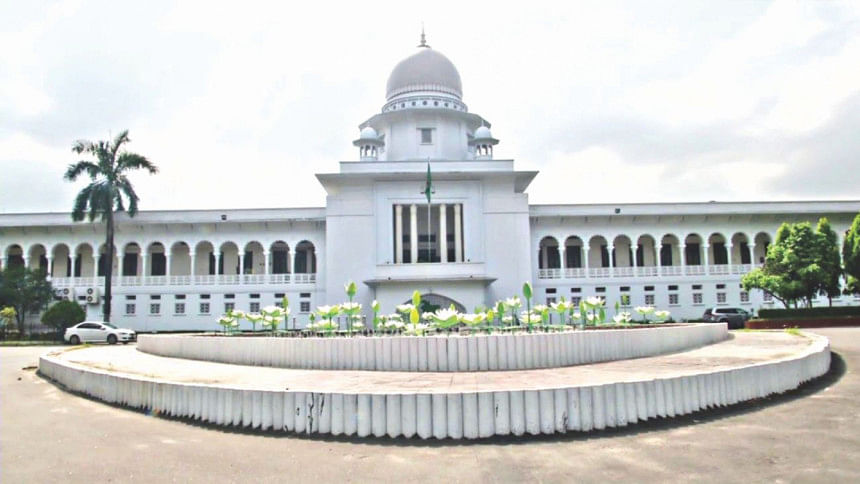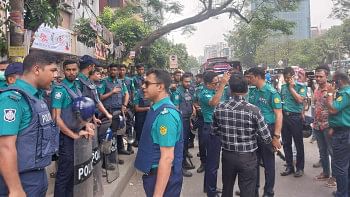HC can’t ask JS to enact or amend law

The High Court does not have the jurisdiction to ask parliament to enact or amend any law, said the Supreme Court in the full text of a verdict regarding river grabbing and pollution.
It said the HC Division had exceeded its jurisdiction while delivering a verdict on the recovery of the land of the Turag from two companies.
"The High Court Division may pass necessary directions to the authorities concerned to protect the biodiversity, ecological balance and environment of Bangladesh. But, the High Court cannot direct the parliament to enact or amend a law or declare any principle to be part of the law," the Appellate Division of the SC said in the verdict.
Following a writ petition filed by Human Rights and Peace for Bangladesh, the HC on February 3 last year declared the Turag a "legal person" and a "living entity" and also directed the authorities concerned to free the river from all kinds of encroachments.
The HC issued a 17-point directive to save the country's rivers and waterbodies from grabbers and pollution.
It directed the Election Commission to disqualify people responsible for river grabbing and pollution from running for public office. It declared the principle of compensations made by the river polluters as a part of the law.
The HC also said the grabbers and polluters would not be able to get bank loans.
The HC in its verdict asked the government to recover the land of the Turag under the possession of Nishut Jute Mills Ltd of Hameem Group and Hossain Dyeing and Printing Mills Ltd of Anwar Group.
Challenging the HC verdict, jute mills and the dyeing company appealed with the SC. The top court rejected the appeals on February 4 this year.
However, the SC held an additional hearing on February 17 and passed a short judgement the same day.
The SC recently released the full text of the verdict after four judges concerned of the apex court, led by Chief Justice Syed Mahmud Hossain, signed it.
In the verdict, the Appellate Division said the HC cannot give such directives in accordance with the law.
However, the three directives of the HC mentioned could be its opinions or suggestions in such matter of public interest, the SC said in the full text of the verdict.
The Appellate Division observed, "The government must be very cautious about deciding the matter and the government shall not under any circumstances lease or sell any land within the boundary of the river Turag, including its foreshore areas or for that matter, any other river of Bangladesh to protect the biodiversity, ecological balance and environment of Bangladesh".
"The government or authorities concerned must bear in mind that at the time of survey it shall always start survey from CS [cadastral survey] map and then go to RS [revisional survey] map and not the other way round," the apex court said.
Lawyer Manzill Murshid, who moved the writ petition before the HC and placed arguments before the Appellate Division on behalf of the writ petitioner Human Rights and Peace for Bangladesh, told The Daily Star yesterday that the government, following the SC verdict, could recover the land in possession of the companies.

 For all latest news, follow The Daily Star's Google News channel.
For all latest news, follow The Daily Star's Google News channel. 



Comments